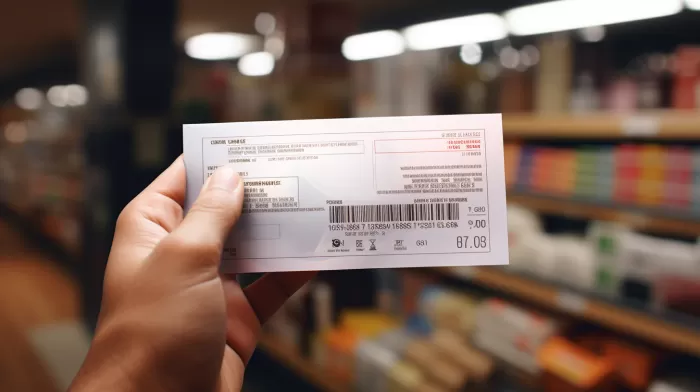Imagine walking into a store, buying your favorite daily essentials, and leaving with a receipt containing harmful toxins. That’s right – the seemingly innocent, run-of-the-mill store receipt that you get from shopping might be harming your health. Unbeknownst to many, the cheap, thin paper used for receipts holds a secret. It contains a toxin called bisphenol S (BPS) that can be absorbed through your fingertips. Scientists are increasingly concerned about the unknown health effects of BPS on your body and the environment.
BPS is used by manufacturers as a substitute for bisphenol A (BPA). BPA is a chemical found in plastic bottles and other goods, notorious for its harmful estrogen-mimicking effects. However, BPS, now found in thermal paper and various other products, may be just as harmful. Alarmingly, it is suspected to be carcinogenic and may even cause heart problems.
Research on this issue is concerning. In a study published in “Environmental Science & Technology,” it was discovered that 87% of paper money and 52% of recycled paper (the type used in receipts) contain BPS. Shockingly, experts estimate that people are absorbing 19 times more BPS than BPA. As the long-term risks are not yet clear, this could have serious implications for our health.
The danger is greater for people who handle thermal paper as part of their jobs. Cashiers, retail associates, and other workers who come into regular contact with receipts may be absorbing much higher amounts of BPS than the average person. This is especially worrying considering that the full extent of health risks are not yet understood, as mentioned previously.
But it doesn’t stop there. Studies have also found BPS in a range of everyday items, including business cards, food cartons, magazines, napkins, toilet paper, and envelopes. Although the amounts of BPS found in these items are much smaller than those found in thermal paper, it still contributes to our overall exposure to this potentially dangerous chemical.
Now, you might be wondering how BPS ends up in these items in the first place. The answer lies in the manufacturing process. BPS is added to the pulp used in paper manufacturing to help improve the paper’s resistance to water and grease. This is especially useful for thermal paper, which is why it has the highest concentration of BPS.
So, how can you protect yourself and your loved ones from exposure to BPS? Here are some simple but effective tips:
- Refuse receipts: Whenever possible, politely refuse paper receipts. Instead, ask for a digital version to be emailed to you. This not only limits your contact with BPS but also helps save paper.
-
Use gloves: If you work in a job where you regularly handle receipts or other items made of thermal paper, it’s a wise decision to invest in a pair of gloves (preferably made from a material that’s resistant to BPS penetration).
-
Be cautious with paper products: Remember that recycled paper is more likely to contain BPS. When purchasing paper products such as toilet paper or napkins, consider looking for brands that use virgin pulp or those that don’t utilize BPS in their production process.
-
Keep receipts away from food: If you take a receipt, make sure it does not come into direct contact with food items, as BPS could potentially transfer from the receipt to the food. This is especially important for fresh produce or items with permeable packaging.
-
Wash your hands: Practice regular handwashing, especially after handling receipts or other thermal paper items. This practice not only helps limit your exposure to BPS but also other potential contaminants.
In conclusion, while the long-term health effects of BPS are still uncertain, it’s crucial to be aware of the potential dangers it could pose. By taking preventative measures to limit your exposure and sharing this information with your friends and family, you can help protect your health and the environment. And remember, while receipts might seem like nothing more than a harmless piece of paper, they hold hidden risks that you should be mindful of.



